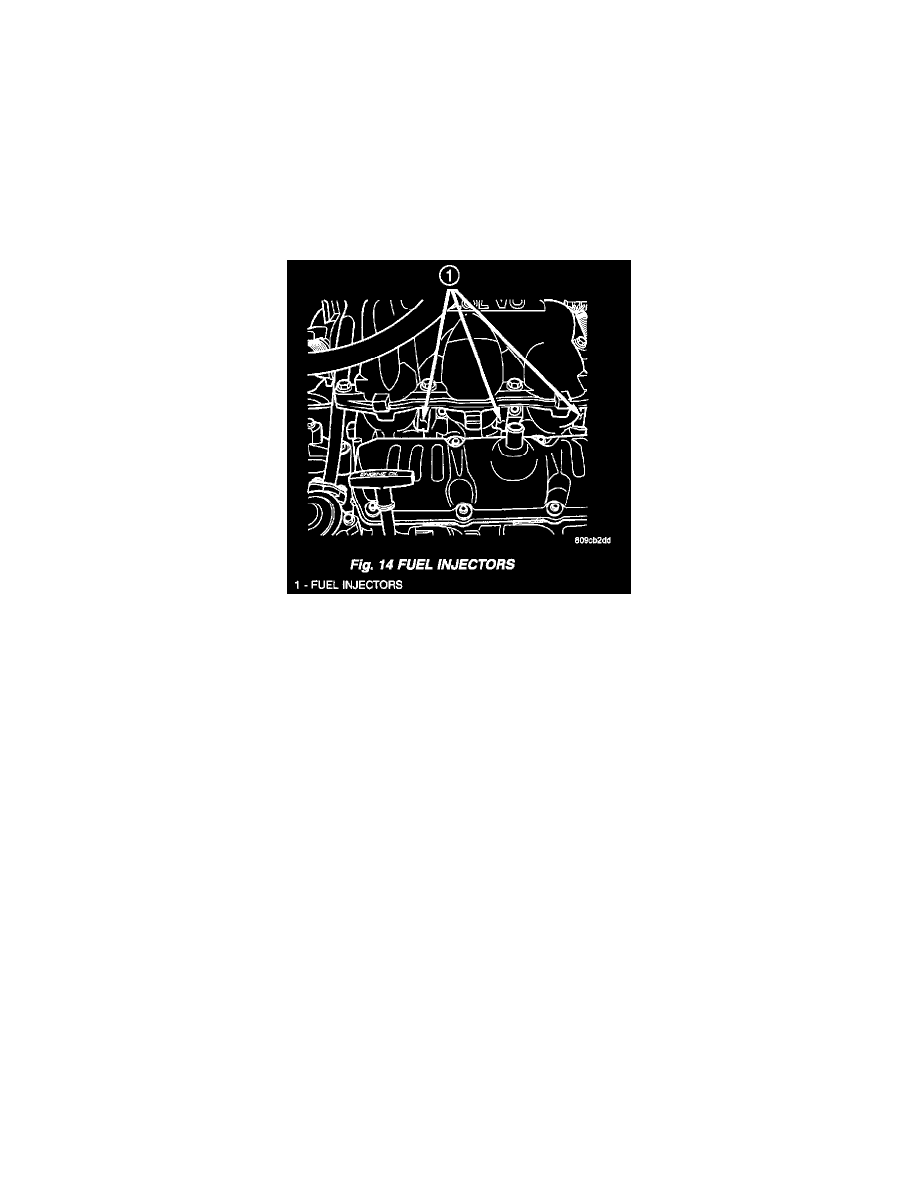Caravan FWD V6-3.3L VIN R (2001)

Fuel Rail: Service and Repair
REMOVAL
1. Perform fuel system pressure release procedure before servicing or starting repairs.
2. Disconnect negative cable from battery.
3. Remove upper intake manifold, refer to Engine / Intake Manifold for more information.
See: Engine, Cooling and Exhaust/Engine/Intake Manifold/Service and Repair
4. Cover intake manifold with suitable cover when servicing.
5. Remove the fuel hose quick connect fitting from the chassis tube. Refer to Fuel Hoses, Clamps and Quick Connect Fittings.
See: Fuel Line Coupler/Service and Repair
WARNING: WRAP A SHOP TOWEL AROUND HOSES TO CATCH ANY GASOLINE SPILLAGE.
Fig. 14 Fuel Injectors
6. Remove the fuel rail attaching bolts (Fig. 14).
7. Remove fuel rail. Be careful not to damage the injector O-rings upon removal from their ports.
INSTALLATION
1. Ensure injector holes are clean. Replace O-rings if damaged.
2. Lubricate injector O-rings with a drop of clean engine oil to ease installation.
3. Put the tip of each injector into their ports. Push the assembly into place until the injectors are seated in the ports.
4. Install the fuel rail mounting bolts. Tighten bolts to 22 Nm (200 in. lbs.) torque.
5. Remove covering on lower intake manifold and clean surface.
6. Install the Upper Intake Manifold, refer to Engine / Intake Manifold for more information.
See: Engine, Cooling and Exhaust/Engine/Intake Manifold/Service and Repair
7. Install fuel hose quick connector fitting to chassis tubes. Push the fitting onto the chassis tube until it clicks into place. Pull on the fitting to ensure
complete insertion.
8. Connect negative cable to battery.
9. Use the DRB III scan tool to pressurize the fuel system. Check for leaks.
